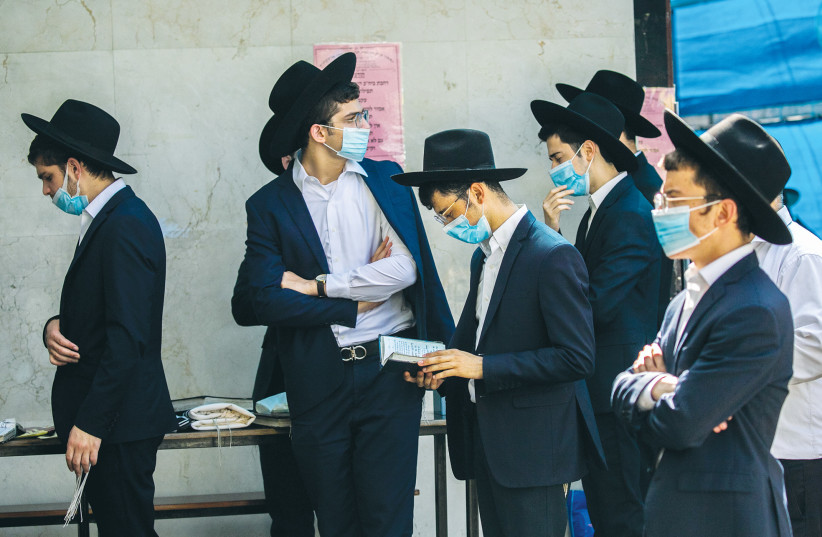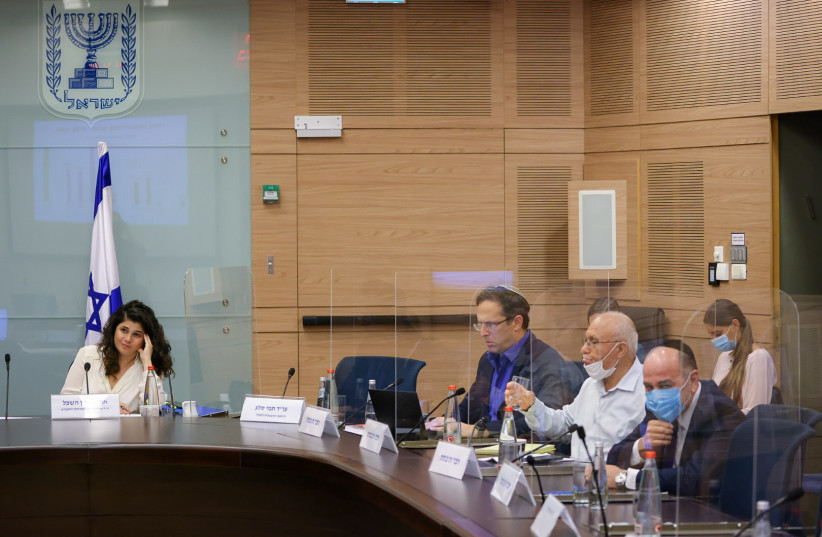Bill anchoring state haredi school system to be advanced
The majority of boys in the state haredi school system do not study subjects that increase entry of ultra-Orthodox men into the workforce.

Chairwoman of the Knesset Education Committee MK
Sharren Haskel (New Hope) announced on Monday that a law anchoring the
state ultra-Orthodox school system, which teaches core curriculum
subjects, will be advanced during the current Knesset.
The
legislation, which she said would be a government bill, would be
developed in a new sub-committee dealing exclusively with the state’s ultra-Orthodox school network.
Passage
of such legislation is crucial to the further development of the
fledgling school system which is severely hampered both by the fact that
it is not an official state school network and at the same time faces
severe opposition by the ultra-Orthodox political parties.
Most
elementary-aged ultra-Orthodox boys study in school networks which do
not teach core curriculum subjects such as math, science, computers or
English, while the overwhelming majority of ultra-Orthodox boys do not
study these subjects at high-school age frameworks.
This
creates severe difficulties for ultra-Orthodox men when they seek to
obtain higher education qualifications and when trying to enter the
workforce, which analysts, including the Bank of Israel, have said will
create severe difficulties for the Israeli economy in coming decades due
to the rapidly growing size of the haredi community.

The Education Committee discusses education in Haredi schools
Haskel
said during a committee hearing on Monday that the legislation would be
prepared together with the ultra-Orthodox Department of the Education Ministry,
the Finance Ministry and haredi community leaders on the issue “to find
the right framework to allow the ultra-Orthodox to fulfil their
potential in whatever manner they should choose.”
She
said the current government “has the opportunity to make the necessary
changes which even ultra-Orthodox representatives are interested in but
are unable to do.”
The
state ultra-Orthodox school system was established during the 2013-15
government, but not through legislation or even administrative orders
from the Education Ministry, creating significant difficulties in
establishing and funding such schools.
In
addition, local municipal authorities must give their authorization for
such schools to be opened due to their lack of national and legislative
standing, which has meant that such schools have not been opened in
ultra-Orthodox stronghold cities such as Bnei Brak because the rabbinic
and political leadership of the community is opposed to such schools,
partly on ideological grounds and partly because they could draw pupils,
and funding, away from the traditional ultra-Orthodox school networks.
The
committee received official statistics from the Education Ministry
revealing that there are currently 490,000 pupils in all ultra-Orthodox
schools in some 7,000 different institutions.
Of those, 257,000 are in elementary school systems, with just 8,496 in the state ultra-Orthodox system.


